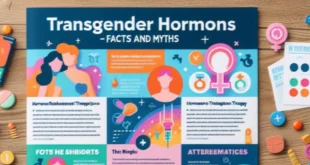Mental health is tightly intertwined with general health. Most FTMs tend to isolate. Not only do they deny themselves contact with society at large, they tend to isolate from each other. Even though this has slowly been changing in urban areas within the past five years, it tends to be the rule of thumb. Many FTMs who meet at meetings are happy to share the physical changes they experience. They are very private about emotional and psychological changes. The struggle against gender stereotypes is more pronounced for FTMs; or the majority of FTMs are simply more aware of gender stereotypes. This often creates a barrier between FTMs and MTFs, creating an even greater sense of isolation&emdash;an isolation from those who might be best equipped to understand or help us.
It is quite often difficult for any transsexual to feel confident about themselves or even feel good about who they are when so many people in their lives (and society as a whole) have regarded them as deceivers, evil, worthless, liars, mentally ill, psychologically unfit, ad nauseum. We are required to seek psychological treatment just for verification of our circumstances. We are told how we are to act, whom we are allowed to love what our sexuality may or may not be, what clothes to wear. Many of us have been taught to lie about who we truly are by the very people who are supposed to be helping us learn to accept who we are. It has only been within the last ten years that some therapists and psychologists have become guides to our process and let us come up with the answers to who we are. Needless to say, the trust level transsexuals have for therapy and mental health professionals is very low. Most sympathetic counselors understand that they will have to do a great deal of coaxing and laying down of a foundation for trust with most transgender folk just to draw them out.
The constant threat of being “outed,” harassed, beaten/ and most profoundly, the threat of being killed is an everyday concern that wears on transgender people. People in the mainstream feel that Brandon Teena “got what he deserved, because he deceived” the people in the town where he was murdered. Sean O’Neil received the same general response from his neighbors: people felt he deserved to face the charges brought against him for deceiving those around him. Some of those charges were valid. However, the majority of them were not. (Ask us for more information about these people’s cases, if you are interested.)
If the person is “out” about their transition, or has even transitioned on the job or in a small town, the risks are even greater. The emotional and psychological toll of these threats is tremendous. There is the added threat in many areas of being locked up and committed to any number of treatments, including shock treatment. These kind of mental pressures make every transgender person susceptible to mental illness of one form or another at any given point in their lives. This does not mean that we are mentally ill or incapable all of our lives. Because this is usually the perception that we encounter, our frustration level is only compounded. The suicide rate for transgender folk is very high. Substance abuse, eating and sleeping disorders, abuse as children, and domestic violence have only recently been being viewed as symptoms of the social pressures that transgender people are under as opposed to being a part of our so-called illness. Not only do we need more help around these issues, we need more education and compassion.
As more and more transgendered people come together and share their experiences with each other as well as the rest of the world, the primary emotion that arises is anger. It is usually the first barrier that must be dealt with by mental health professionals. Because of that anger, transsexuals can be marked as socially unfit. Western medicine’s approach to classifying the symptom and not dealing with the root problem(s) is constantly used as a weapon against transgender folk. Until transgendered people are given space to feel safe, that will continue to be true. It is not just the transgendered folk who need help or have a problem; it is society as a whole.
Notes on Gender Transition
Revised September, 1997
FTM 101 — The Invisible Transsexuals
By: Shadow Morton, Yosenio Lewis, Aaron Hans–James Green, Editor
 Lesbian, Gay, Bisexual, Transgender & Intersex News Lesbian News, Gay News, Bisexual News, Transgender News, Intersex News, LGBTI News
Lesbian, Gay, Bisexual, Transgender & Intersex News Lesbian News, Gay News, Bisexual News, Transgender News, Intersex News, LGBTI News




